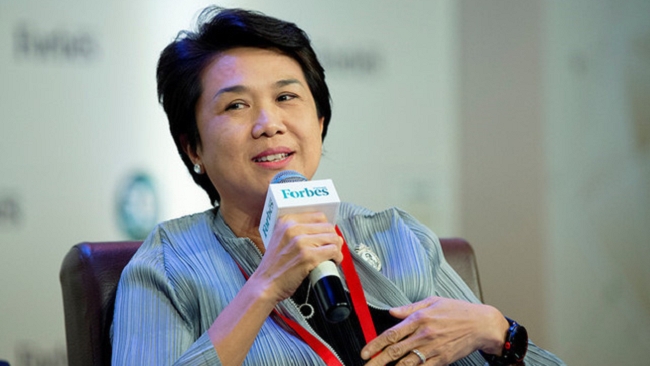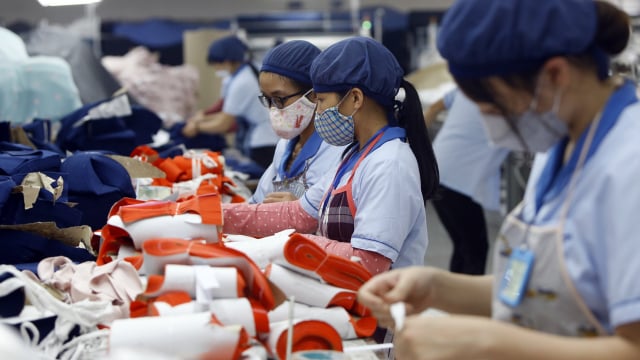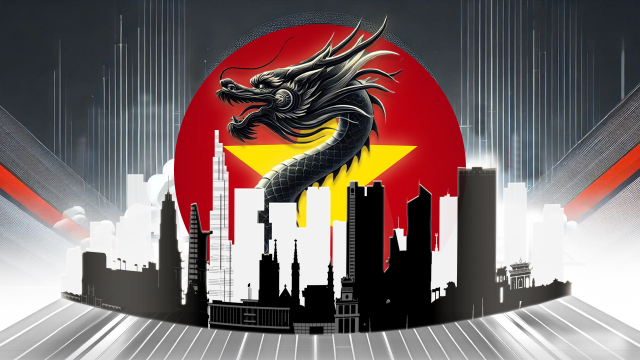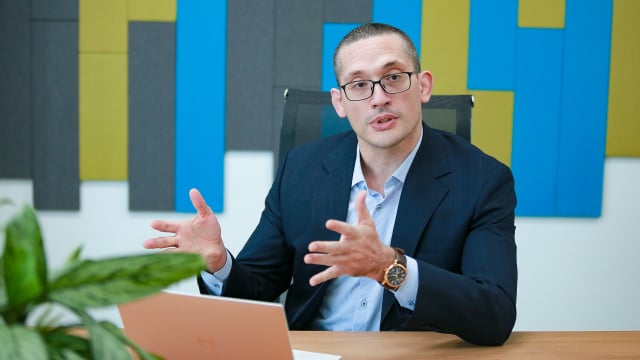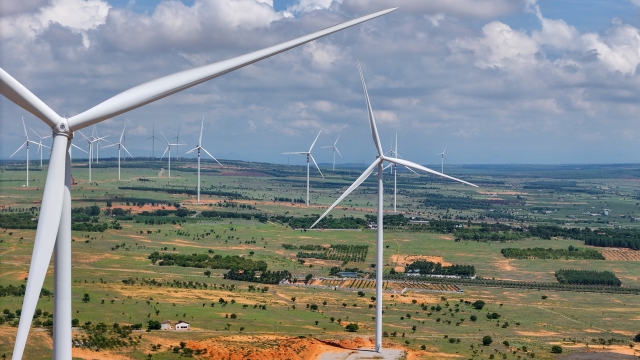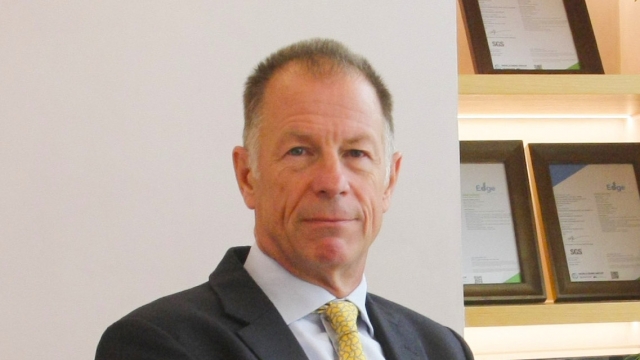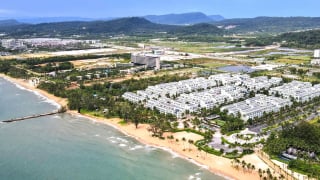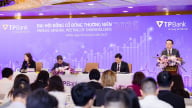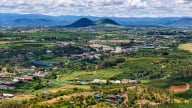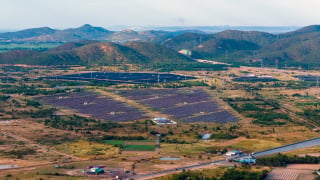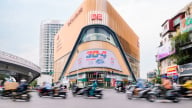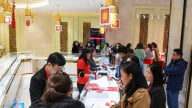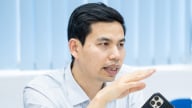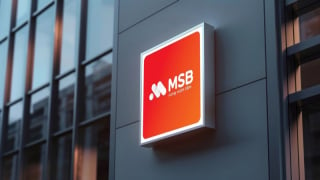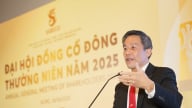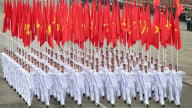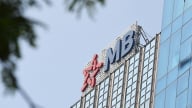Leader Talk
CEO AMATA reveals ways to grow fast despite crises
Having joined hands with the world's top corporations in different fields, combined with 30 years of experience in industrial real estate developments in Thailand, Laos, and Myanmar, AMATA is increasing its presence in the world with breakthrough projects.

“I don’t consider anyone my rival, we are investors in the same industry,” said CEO AMATA VN PCL Somhatai Panichewa.
Vietnam has been expected to be a promising destination for the wave of factory relocation from China in the context of the US-China trade war. As an industrial zone developer, do you have any comments on this?
Somhatai Panichewa: Vietnam has plenty of strong fundamentals for excellent growth. Despite the Covid-19 pandemic, Vietnam is one of a few nations in the world recording positive GDP growth last year (2.91 per cent). The Government of Vietnam has achieved the dual goal of controlling the pandemic while maintaining economic growth.
In fact, manufacturers intend to find a new location outside of China for production not just because of the trade war. Many companies have had expansion plans before. The trade war and especially the Covid-19 pandemic accelerated this process.
When they move out of China, they need a place with effective disease control and free trade agreements that include attractive incentives. That is why Vietnam, with 16 FTAs signed so far, has become a priority. The pandemic has had a number of positive effects on Vietnam.
Do you think that foreign investors would not only look at the short-term benefits relating to the virus?
Somhatai Panichewa: Definitely! Vietnam has long-term advantages for investors to consider. Location is of the utmost importance. Vietnam borders the southern Chinese province of Guangxi with proximity to Shenzhen and Hong Kong. Most manufacturing in Vietnam is also clustered at the Northern edge of China.
Vietnam's economic and political stability is also a great advantage of the country compared to other Asian nations.
Vietnam has a population of nearly 100 million people whose income and spending demands are increasing. Market share is a great attraction for investors. For example, many companies continue to enter Indonesia not because of incentives but for market share. However, logistics is a major challenge in Indonesia. One hour is not enough to move from Jakarta to the airport.
The Government of Vietnam has also imposed focused policies to build a strong economy with new models especially the digital economy.
Your first FDI investor in Song Khoai Industrial zone Jinko Solar Technology Ltd of Hong Kong last month was granted a license for investing in a photovoltaic cell technology project worth $500 million in AMATA's Song Khoai industrial zone. How did you seize the opportunity to have such a big client?
Somhatai Panichewa: Constantly working to add more value to our projects is what gives us new opportunities.
Amata CEO reveals details about $1.6 billion smart city in Quang Ninh province
The partnership with Jinko Solar Vietnam is in fact a mutually beneficial partnership. Song Khoai Industrial zone is our first step to develop AMATA Halong smart city in Quang Ninh province. Solar modules manufactured by Jinko Solar would be one of our key suppliers for smart energy production in the smart city.
Does that mean AMATA chooses customers?
Somhatai Panichewa: We choose each other. Customers come to us because we have very good locations. At the same time, we were thinking about why we need this customer. If both are beneficial then that is the best synergy.
How do you compete with other existing and potential rivals to seize the opportunities from the wave of factory relocation?
Mrs. Somhatai Panichewa: I have not considered anyone my rival. We are investors in the same industry. That is because each industrial zone project is inherently suitable for a certain type of customer. Each company, each product has different requirements.
AMATA's newest customer, Jinko, had surveyed 30 industrial parks and decided to choose Song Khoai industrial zone. They need a location next to the port for importing production materials and exporting products to different markets in the world.
However, those companies prioritizing low-cost human resources are not our target customers. Other investors reported that their factory emissions were high; therefore, they mainly look for projects located far from the city center.
The initial choice is not in the hands of the industrial park developers but the customers. When they have made their decision, it is time for developers to decide if we are suitable for them or not.
“Don’t be smart alone when doing innovation"
As an industrial zone developer, did you face any difficulties in the pandemic?
Somhatai Panichewa: We encountered some small challenges, but not many. We do not cut any employee's salary or job. All activities are the same as before; however, we are more focused on our business and more cautious during the pandemic. We did online experience sharing among AMATA's teams from Thailand, Laos, Myanmar, and Vietnam in order to help each other be stronger.
There are only a few enterprises in our industrial zone encountering challenges in supply chain and import. We provided policies to support them to overcome difficulties.
.jpeg)
The saying “finding opportunities in challenges” has been discussed a lot in Vietnam lately. What is your opinion?
Somhatai Panichewa: There are always opportunities in challenges. If you are focused and smart enough, you will get opportunities. Once you gain experience, you will find the opportunity to diversify your business or create a new innovation that will become the core of your future business model.
However, do not be smart alone, be smart in the team because you will have many observing eyes, many minds to come up with new ideas together. That is the best way to gain the best ideas, especially from young people. Young people love innovation, love digital platforms. I am 55 years old but I have not stopped learning new things from others.
What are other opportunities AMATA has found in challenges?
Somhatai Panichewa: Because of the pandemic, customers from other countries could not come to us. However, we practiced thinking positively and did see it as an opportunity to improve our system.
In recent years, AMATA has transformed its business with the cutting edge management application for the planning, design, construction, and management of projects. The technology also integrates and synchronizes activities in the company, from cost analysis, sales management, after-sales service, etc.,...
Besides, we keep expanding to different locations and sectors. We are constantly looking for the best opportunities in the pandemic. E-commerce with the shift to online platforms has been a keyword lately, but that's the story of the retail industry.
As an industrial zone and smart city developer, we have found a new idea for a clean and organic food city. And maybe in the future, it will be about food that is compressed in the form of ready-to-eat capsules.
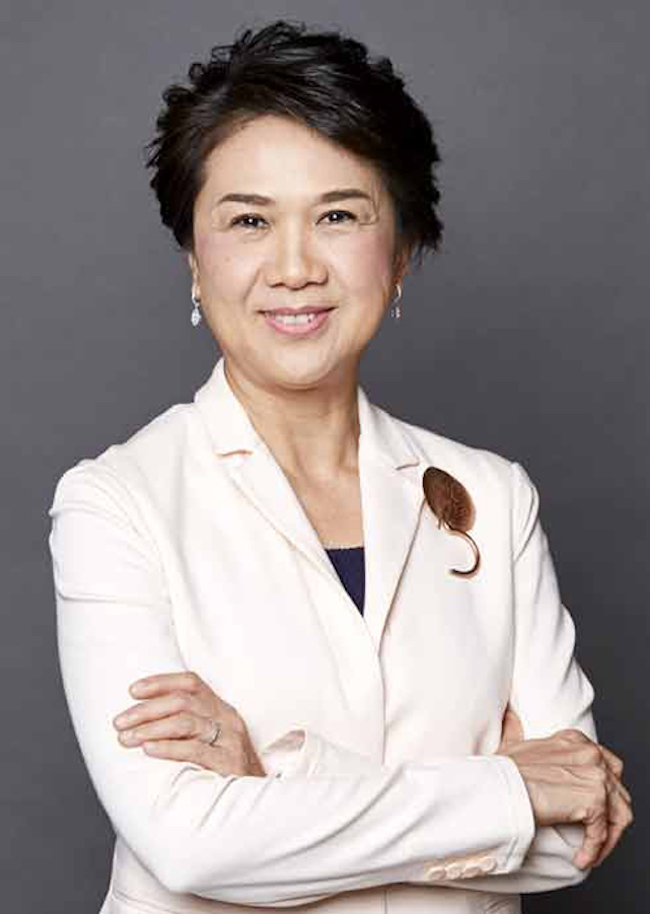
The Covid-19 pandemic is one of many crises that people on the earth have to face. We are not sure about the time this pandemic would end despite the vaccine. In that context, food is the most important for people to survive.
The forecast of 10 billion people in 2050 would need clean, organic, and nutritious food to build up a resistance to contagious diseases. That's why we think more of people.
Is AMATA food city still just an idea or has been seriously implemented somewhere in the world?
Somhatai Panichewa: We are currently doing R&D. I could not reveal more about the location of this project but it would be built within the Greater Mekong Subregion.
Learning about your projects, people would notice innovative thinking in AMATA. Could you please share more about this?
Somhatai Panichewa: We joined hands with Hitachi High-Tech to develop the Lumada Center Southeast Asia, a cutting-edge IoT center offering digital solutions to customers. The project is located in AMATA City Chonburi, one of the three smart cities along Thailand’s Eastern Economic Corridor.
We also set up joint ventures with other giants in the world to develop smart cities, especially Chinese and Taiwanese. We cooperate with China’s unicorn startups to bring innovation to Thailand and develop innovation hubs.
As I said, we do not go alone, we go with smart partners and learn from them. They do not have good locations while we do not have good technology. Together, we create mutually beneficial partnerships. That is how we grow. Today, speed is very important. You can not go fast if you go alone.
How do you encourage innovation in your workforce?
Somhatai Panichewa: We have implemented a lot of policies and activities. However, the first and foremost thing is to find internal talent to get the best ideas. We give our employees a “stage” where they show their talents and give awards to the best people.
Many people do not want to show their talents individually but as a team. In fact, 95 per cent of ideas are presented in groups.
Once we've found the talents, we understand that being on a team doesn't mean everyone is excellent. We try to find competency gaps and help them fill those gaps through different training and assignment programs.
What are you planning in this context of new normal?
Somhatai Panichewa: Industrial zones will not be just industrial zones anymore. We are aiming to develop smart cities and eco-cities.
30 years of experience developing projects in Thailand is our advantage. These experiences are being applied in the Vietnamese market to build green cities, with a philosophy of mutual benefit.
Today, Dong Nai and Quang Ninh are two key provinces for our smart development.
Following Dong Nai and Quang Ninh, which city/province would be AMATA's next destination in Vietnam?
Somhatai Panichewa: The next project is located in Quang Tri province. The consortium of Sembcorp, AMATA, and Sumitomo will build a 481.2 ha industrial park. This is the first industrial zone together developed by three giants.
We received the investment registration certificate in March and expect to start construction in June or July this year.
Thank you very much!
Amata Vietnam CEO: Each customer is an ambassador
When organic becomes an inspiring wellbeing lifestyle
For Tyna Huynh, co-founder of Drinkizz, organic is not just a food choice but a way of life that fosters a deep connection between people, nature and community.
Garment factories embracing respectful workplaces
Embracing respectful workplaces could very well be the key to unlocking a more prosperous future for Vietnam's garment industry.
Vietnamese corporates in new era: The reborn dragon
Vietnamese businesses have had a long journey with great achievements, and this path will continue and blossom in years to come.
The future of jobs in AI era
While some jobs are expected to be replaced by emerging AI applications, the technology is broadly seen as a catalyst for positive transformation in the workforce.
Financing Southeast Asia’s energy transition
The energy transition is bringing forth new challenges, particularly in refining financial systems.
Few countries are better placed than Vietnam for consistent robust growth
Alex Hambly talks about investment opportunities in Vietnam following his appointment as chief investment officer (CIO) of VinaCapital.















